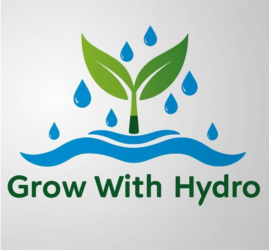When you think of hydroponic gardening, it might seem like a futuristic concept. However, this innovative method of growing plants without soil has roots that stretch far back into history. From ancient civilizations to cutting-edge agricultural technology, hydroponics has a fascinating story to tell. Let’s take a quick trip through time to uncover the origins and evolution of hydroponic gardening.
Ancient Beginnings
The concept of hydroponics is older than you might imagine. Some historians believe that the famous Hanging Gardens of Babylon, one of the Seven Wonders of the Ancient World, may have employed an early form of hydroponics. These lush gardens, built around 600 BCE, were said to feature cascading plants irrigated by a complex system of water channels. While we can’t confirm whether the gardens were truly hydroponic, the idea of using water to deliver nutrients to plants was clearly in play.
Another example comes from the ancient Aztecs. Around the 10th century, they developed “chinampas,” or floating gardens, to grow crops like maize, beans, and squash. These man-made islands were constructed on shallow lakebeds and enriched with nutrient-dense sediment and organic material. While not strictly hydroponic by today’s definition, chinampas showcased the power of growing plants in nutrient-rich water environments.
Scientific Foundations
Fast forward to the 17th century, when European scientists began to study plant nutrition in earnest. In 1627, Sir Francis Bacon published Sylva Sylvarum, one of the first works to describe water culture experiments. This sparked interest in the idea that plants could grow without soil as long as they had access to the right nutrients.
By the mid-19th century, German botanists Julius von Sachs and Wilhelm Knop advanced the field by developing nutrient solutions that could sustain plants in water. Their experiments proved that soil wasn’t necessary for plant growth, as long as plants received essential minerals like nitrogen, phosphorus, and potassium. These discoveries laid the groundwork for modern hydroponics.
Modern Hydroponics Takes Root
The term “hydroponics” itself was coined in the 1930s by Dr. William F. Gericke, a professor at the University of California, Berkeley. Gericke made headlines by using water-based systems to grow massive tomato plants, demonstrating the practical potential of hydroponics for large-scale food production. He also wrote extensively on the subject, bringing hydroponics into the mainstream.
During World War II, hydroponics proved invaluable for growing fresh produce on remote Pacific islands where soil was scarce. This marked the beginning of hydroponics as a tool for solving agricultural challenges in extreme environments.
The Space Age and Beyond
In the latter half of the 20th century, hydroponics gained traction as a futuristic farming solution. NASA explored hydroponic systems for growing food in space, paving the way for sustainable agriculture beyond Earth. These experiments also inspired advancements in controlled environment agriculture (CEA), which combines hydroponics with technologies like artificial lighting and climate control.
Today, hydroponics is used worldwide, from urban vertical farms to large-scale commercial greenhouses. With growing concerns about food security and sustainability, hydroponics offers a way to produce fresh, healthy crops using less water and land than traditional farming methods.
Final Thoughts
The history of hydroponic gardening is a testament to human ingenuity and adaptability. From ancient floating gardens to space-age farming, hydroponics has evolved into a powerful tool for feeding the world. Whether you’re a history buff or a gardening enthusiast, it’s amazing to see how this age-old idea continues to grow and thrive in the modern era.



Hello!
This article provides such a fascinating overview of the history of hydroponics! It’s incredible to see how this method of farming has evolved over time, from its ancient origins to the cutting-edge techniques used today. I’m curious—how do you think hydroponics will continue to change the future of agriculture? Do you see any new innovations on the horizon that could revolutionize the way we grow food?
I also wondered about the environmental impact of hydroponics. While it’s known for being water-efficient, are there any challenges related to energy use or waste management that need to be addressed as the industry grows?
Lastly, do you have any personal thoughts on the best entry-level hydroponic systems for beginners looking to try it out at home? I’d love to hear your recommendations! This was a fantastic read, thank you for sharing all this valuable history!
Angela M 🙂